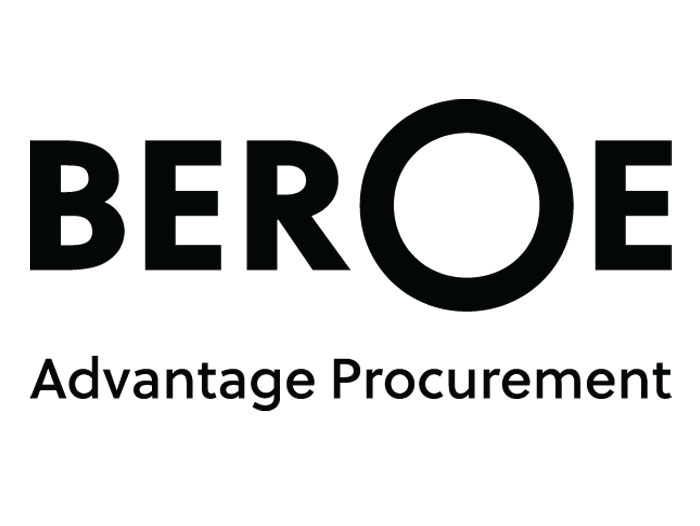Demand for Sugar Reduction Technologies Surging High, says Beroe
November 11, 2021 | 3 min to read

RALEIGH, N.C. — Due to various health issues resulting from its excessive use, sugar has been dubbed a “white poison”. As a result, the demand for sugar reduction technology has risen in recent years. Several major firms are conducting research and developing healthy sugar alternatives or sugar substitutes for many types of food. There have been several innovations in the sugar industry, like monk fruit sweetener, allulose sugar substitute, targeted flavor delivery, and sweet proteins. Today, there are healthy substitutes for sugar in baking too, like substitutes for agave nectar, marketed by leading sugar substitute brands.
“Health problems are increasingly becoming worse, prompting people to look for the best artificial sweetener. Today, technology has ensured sugar substitutes for diabetics, which is a stellar achievement,” said Neha Unnikrishnan, agro analyst at Beroe. “Sugar accounts for more than 70 percent of the sweetener market in Europe. While Aspartame and Sucralose are the most widely used types of sugar substitutes, Stevia is also gaining popularity as a natural sweetener in Europe. Xylitol substitutes are also emerging as a preferred choice.”
Some of the innovations for the best sugar substitutes include:
- Monk Fruit: This is a Chinese fruit that is gaining favor as a natural sugar reduction approach. With its Stevia and Monk Fruit combination, this monk fruit sweetener has customized solutions created for worldwide food manufacturing firms. This will assist in minimizing all of Stevia’s taste-related problems. It has already received permission in Asia and the United States. The monk fruit sweetener is sweeter than Stevia and may be mixed with other sweeteners. However, its drawbacks include a strong flavor, a lasting aftertaste, and a high price.
- Allulose: Allulose, which may be found in raisins and figs, can be utilized as a bulk sweetening component without adding calories. It can be used in conjunction with other sweeteners such as Sucralose and Stevia. It is like a xylitol sugar substitute. It has a sweetness that is comparable to sucrose but with a better temporal profile. It also has the same volume, texture, and caramelization as sugar. However, research into large-scale allulose production is required because of its disadvantages, such as limited availability.
- Targeted Flavor Delivery: Unique Targeted Flavor Delivery systems maximize sweetness efficiency without sacrificing flavor. They are produced from cane/beet sugar. A mineral carrier is filled with sugar molecules that form a cluster of sweetness. These are dense and tend to linger on the tongue for a long time. It is a sustainable component and cost-effective. The disadvantage is that bulking agents are required to achieve the same weight after sugar reduction. The expenses of the formulation may be considerably high as well.
- Sweet proteins: This is a biostimulation method for increasing sweet protein synthesis. An in vitro plant tissue cultivation in bioreactors is used in this procedure. The plant’s particular organs that generate the sweet proteins are cultivated using the stable callus. If necessary, it is refined further. There are no GMOs utilized in the manufacturing process, and they may be used to scale up any food ingredient. Plant tissue growth in bioreactors is a costly procedure, and purification of the protein gained adds to the expense of manufacturing.
It’s worth noting the sugar reduction technologies are still in their early stages and have yet to gain widespread adoption.
“The main focus points in the natural sweetener market are commercial production (especially in case of allulose), subsequent production costs, and regulatory approvals,” Neha Unnikrishnan, agro analyst at Beroe. “Given that stevia enjoys significant acceptance, it is expected to be most impactful in the future and re-shape the sweetener industry.”
For more such market insights, procurement intelligence, supplier analysis, price, and cost benchmarking, please log on to Beroe LiVE.Ai: https://www.beroeinc.com/beroe-live-ai/
About Beroe
Beroe is the world’s leading provider of procurement intelligence and supplier compliance solutions. We provide critical market information and analysis that enables companies to make smart sourcing decisions — leading to lower costs, greater profits, and reduced risk. Beroe has been providing these services for more than 15 years and currently works with more than 10,000 companies worldwide, including 400 of the Fortune 500 companies. For more information about Beroe Inc., please visit https://www.beroeinc.com/.
